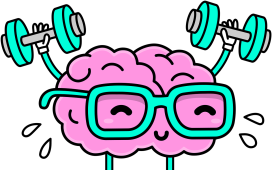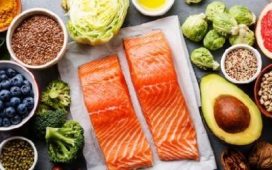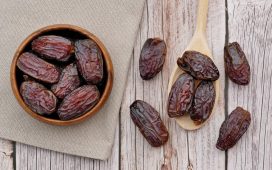Pregnancy is a pivotal time for nourishing both the mother and the growing baby. Eating a balanced diet rich in essential nutrients can promote a healthy pregnancy and support fetal development. Here are ten nutrient-packed foods that every expectant mother should consider incorporating into her diet for a healthy baby. 10 foods to eat during pregnancy for a healthy baby.
10 foods to eat during pregnancy for a healthy baby
1. Leafy Green Vegetables
Leafy greens like spinach, kale, and Swiss chard are packed with folate, a B vitamin essential for preventing neural tube defects in the developing fetus. Folate also supports healthy red
blood cell formation, helping to prevent anemia in pregnant women. These greens are also rich in fiber, calcium, and antioxidants, which are all beneficial for both the mother and baby.
Tip: Add leafy greens to salads, smoothies, or soups for a nutritional boost.
2. Eggs
Eggs are an excellent source of high-quality protein and contain various vitamins and minerals, including choline. Choline is essential for brain development and helps prevent abnormalities in the baby’s brain and spine. In addition, eggs provide a healthy amount of Vitamin D, which supports bone health.
Tip: Try eating eggs scrambled, boiled, or added to vegetable-rich omelets.
3. Salmon
Salmon is a rich source of omega-3 fatty acids, which are vital for fetal brain and eye development. Omega-3s also help prevent preterm labor and reduce the risk of postpartum depression. Salmon is also one of the few food sources of vitamin D, which supports bone health in both the mother and baby.
Tip: Aim to eat salmon or other low-mercury fish like sardines twice a week to get the benefits of omega-3s.
4. Sweet Potatoes
Sweet potatoes are an excellent source of beta-carotene, an antioxidant that the body converts to vitamin A. Vitamin A is crucial for fetal development, particularly for the growth of the baby’s lungs, heart, and kidneys. Sweet potatoes are also rich in fiber, which helps with digestion and prevents constipation.
Tip: Bake or roast sweet potatoes, or mash them as a side dish for a tasty and nutritious option.
5. Greek Yogurt
Greek yogurt is packed with protein, calcium, and probiotics, which are essential for healthy bones and gut health. Calcium is especially important during pregnancy, as it helps build the baby’s bones and teeth. Probiotics in yogurt also support the mother’s digestion, which can be beneficial as pregnancy can sometimes cause digestive discomfort.
Tip: Add Greek yogurt to smoothies, pair it with fruits, or use it as a base for dips.
6. Nuts and Seeds
Nuts and seeds are nutrient-dense snacks that are rich in protein, healthy fats, fiber, and various vitamins and minerals like magnesium and zinc. Magnesium helps reduce the risk of premature
contractions, while zinc supports cell growth and immune function. Walnuts and chia seeds, in particular, are high in omega-3s, which benefit fetal brain development.
Tip: Snack on a handful of mixed nuts, or add seeds like chia and flax to oatmeal, yogurt, or salads.
7. Berries
Berries, such as strawberries, blueberries, and raspberries, are loaded with antioxidants, fiber, and vitamins like vitamin C. Vitamin C aids in iron absorption and strengthens the immune system. Antioxidants in berries protect the cells from damage and support the healthy development of the baby’s organs.
Tip: Add berries to your morning cereal, blend them into a smoothie, or enjoy them as a refreshing snack.
8. Lean Meat
Lean meats, like chicken and turkey, are high in iron and protein. Iron is crucial during pregnancy, as it supports the increase in blood volume and helps prevent anemia. Adequate iron levels ensure that the baby receives enough oxygen. Meat also provides B vitamins, which are essential for energy production and fetal growth.
Tip: Choose lean cuts and incorporate meat into balanced meals with vegetables and whole grains.
9. Avocado
Avocado is rich in healthy fats, fiber, and several key nutrients, including potassium, folate, and vitamin C. The healthy monounsaturated fats in avocado support fetal brain development, while potassium helps reduce leg cramps, a common issue during pregnancy. Folate in avocados also aids in cell division and the formation of the baby’s neural tube.
Tip: Add avocado to salads, sandwiches, or smoothies, or enjoy it on toast.
10. Whole Grains
Whole grains like oats, quinoa, and brown rice are excellent sources of fiber, B vitamins, iron, and magnesium. The fiber in whole grains helps with digestion, reducing the risk of constipation, while B vitamins support energy production and fetal brain development. Whole grains also provide complex carbohydrates, which help maintain steady blood sugar levels.
Tip: Swap refined grains for whole grains in your meals, such as using brown rice instead of white rice or oatmeal instead of sugary cereals.
conclusion:
A balanced diet during pregnancy is essential for both the mother’s and baby’s health. Including these ten nutrient-dense foods can support fetal development, boost the mother’s energy levels, and help prevent common pregnancy-related issues. It’s always best to consult a healthcare provider before making significant dietary changes during pregnancy to ensure you’re meeting your unique nutritional needs.
Prioritizing these nutritious foods can make a difference in promoting a healthy pregnancy and a healthy baby. Enjoy your journey to motherhood with nourishing choices that benefit both you and your little one.







